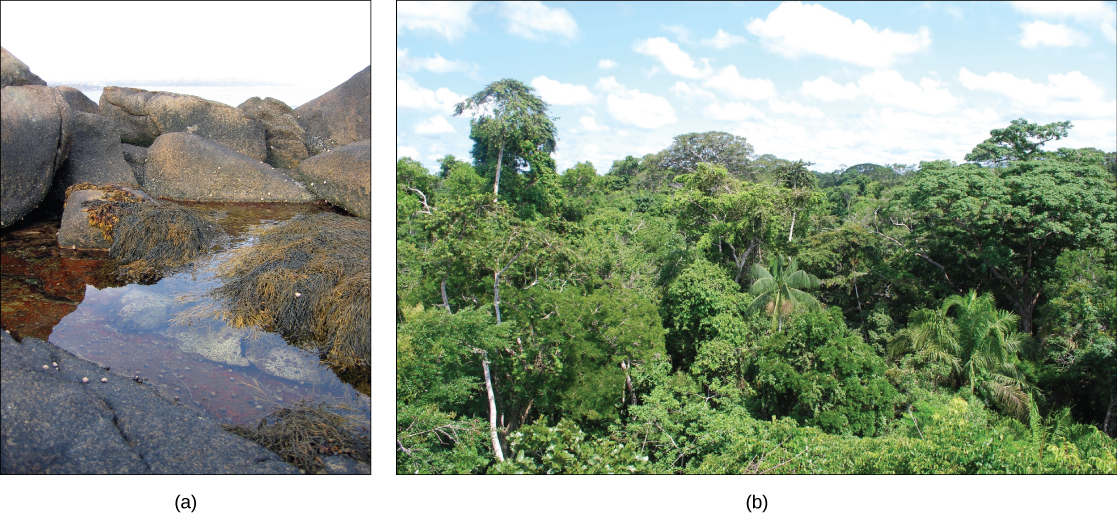| << Chapter < Page | Chapter >> Page > |
The early bird gets the worm, but the second mouse gets the cheese.Willie Nelson, American musician
Competition for limited resources, whether it is a worm or a chunk of cheese, is an essential component of the evolutionary mechanism we call natural selection. Competition in communities (all living things within specific habitats) is observed both between members of the same species, and between members of different species. The resources for which organisms compete include food (or sunlight in the case of plants), mineral nutrients, nesting habitat, etc. Other critical factors influencing community dynamics are the components of its physical and geographic environment: a habitat’s latitude, amount of rainfall, topography (elevation), and temperature. These are all important environmental variables that help determine which organisms can exist within a particular area.
An ecosystem is a community of living organisms and their interactions with their abiotic (non-living) environment. Ecosystems can be small, such as the tide pools found near the rocky shores of many oceans, or large, such as the Amazon Rainforest in Brazil ( [link] ).

There are three broad categories of ecosystems based on their general environment: freshwater, ocean water, and terrestrial. Within these broad categories are individual ecosystem types based on the organisms present and the type of environmental habitat.
Ocean ecosystems are the most common, covering 75 percent of the Earth's surface and consisting of two general types: shallow ocean (near islands and continents), and the deep ocean. The shallow ocean ecosystems include extremely biodiverse coral reef ecosystems. The surface water of the deep ocean is known for its large numbers of plankton (small organisms that disperse at the mercy of the winds and currents). Planktonic organisms can be phytoplankton (photosynthetic organisms), or zooplankton (tiny animals or animal larvae, which feed on the phytoplankton). These two environments are globally important; the phytoplankton perform 40 percent of all photosynthesis on the planet (i.e., produce 40% of the oxygen and fix 40% of the CO 2 ). Although not as diverse as the other two, deep ocean ecosystems contain a wide variety of marine organisms. Such ecosystems exist even at the bottom of the ocean where light is unable to penetrate.
Freshwater ecosystems are the rarest, occurring on only 1.8 percent of the Earth's surface. Lakes, rivers, streams, and springs comprise these systems; they are quite diverse, and support a variety of fish, amphibians, reptiles, insects, phytoplankton, fungi, and bacteria.
Terrestrial ecosystems, also known for their diversity, are grouped into large categories called biomes, such as tropical rain forests, savannas, deserts, coniferous forests, deciduous forests, and tundra. Grouping these ecosystems into just a few biome categories obscures the great diversity of the individual ecosystems within them. For example, there is great variation in desert biomes: the saguaro cacti and other plant life in the Sonoran Desert, in the United States and Mexico, are relatively abundant compared to the lack of plant life in the desolate rocky desert of Boa Vista, an island off the coast of Western Africa ( [link] ).

Notification Switch
Would you like to follow the 'Principles of biology' conversation and receive update notifications?